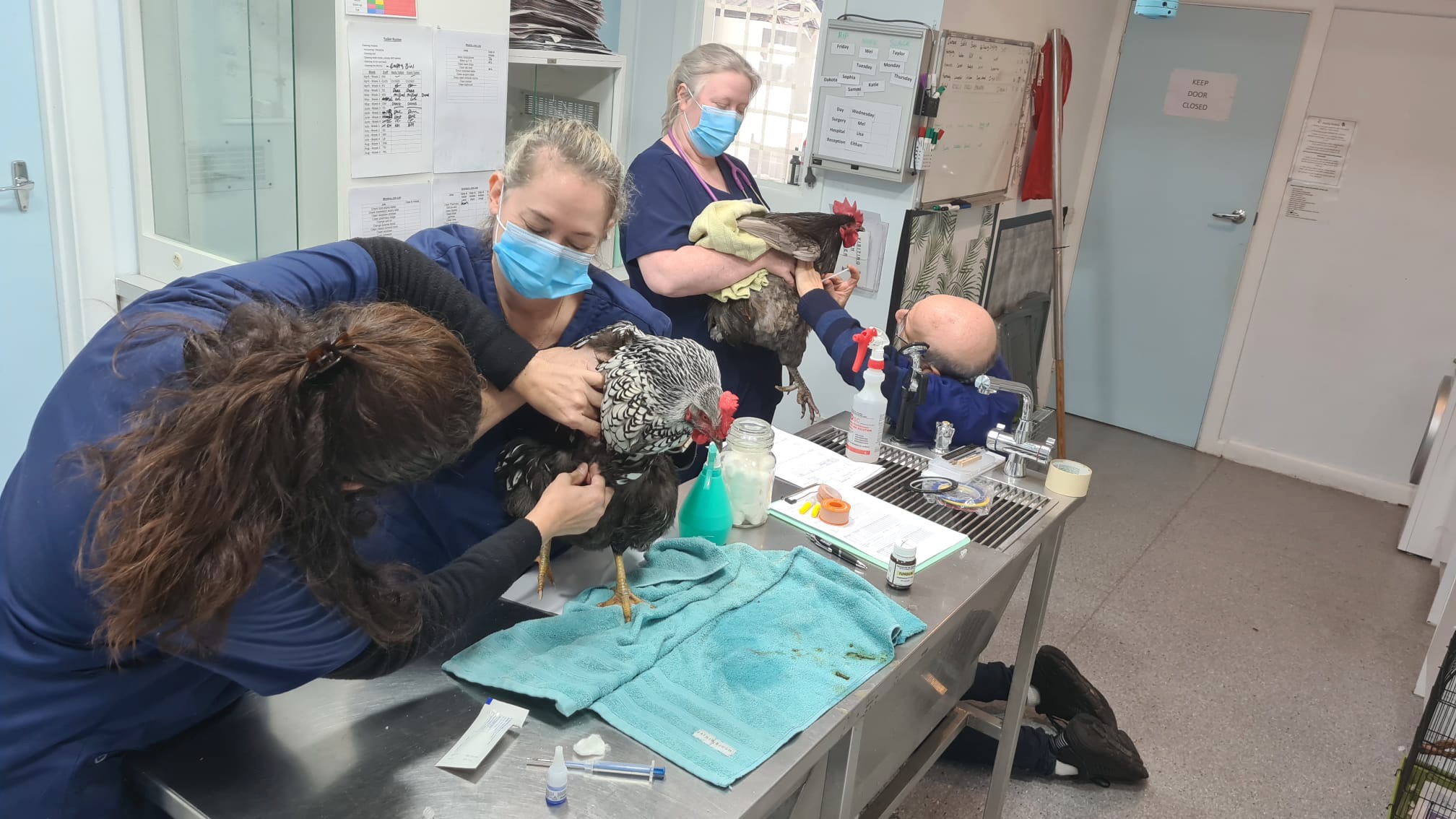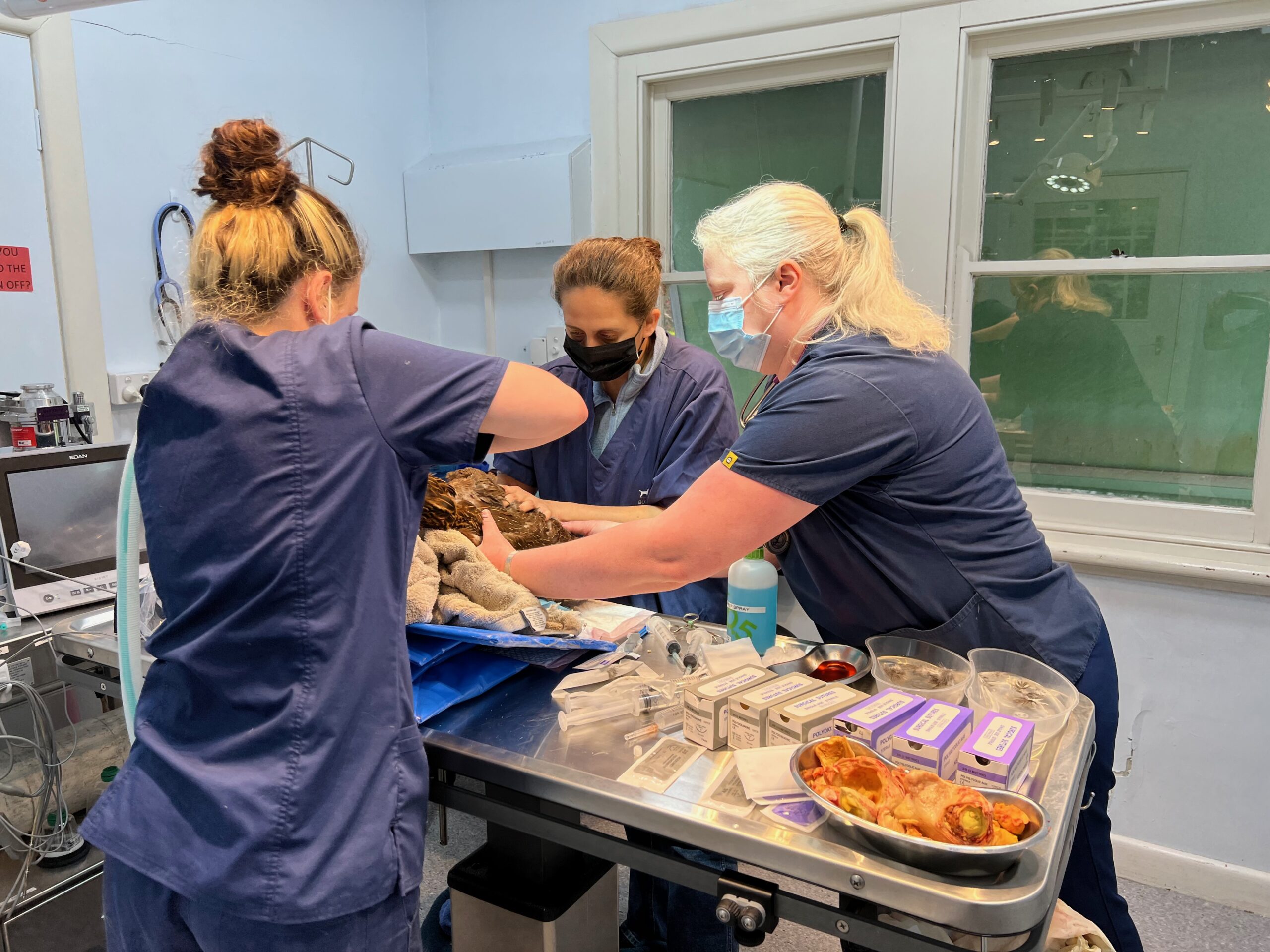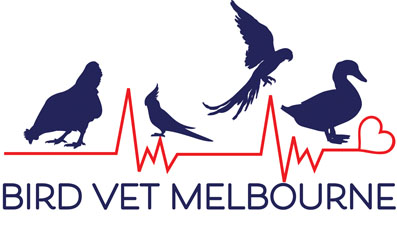Avian Reproductive Disease

How To Prevent Reproductive Disease
One of the most common reasons for backyard hens to come to Melbourne Chicken Vet is for reproductive tract disease. Laying breeds have been bred to lay eggs so prolifically that complications are common. Chickens are very good at hiding illness, so by the time they look sick the disease is usually quite progressed. They are usually quiet, less active than usual, not eating very much, and have fluffed-up feathers. They may have a hunched posture and a swollen abdomen. There are two common and related presentations of reproductive disease:
- A hard lump in the abdomen. The oviduct (which is like the uterus in a bird and is involved in egg production) has become blocked, but the ovary continues to ovulate and produce yolks. The oviduct becomes swollen and full of dried up yolks and malformed egg material. The treatment is to perform surgery to open the oviduct and remove the accumulation of egg material. At bird vet melbourne this is a common surgery that we perform and one that is usually successful if the chicken is not too sick before the surgery. (See pictures below)
- A fluid filled abdomen. In these hens the yolk released from the ovary has gone out into the abdomen instead of into the oviduct, and the body reacts as if it is a foreign invader and produces a lot of fluid in the abdomen. The build up of fluid presses on the hen’s air sacs and interferes with breathing. We treat these birds by draining some of the fluid from the abdomen and giving the hen a hormonal implant, a bit like a human contraceptive implant, to stop the ovary producing more yolks. Some birds with this problem have cancer in their abdomen. Unfortunately surgery can’t remove all the cancer, but the hormonal implant can sometimes slow the growth of the cancer and improve the hen’s quality of life for a period.

